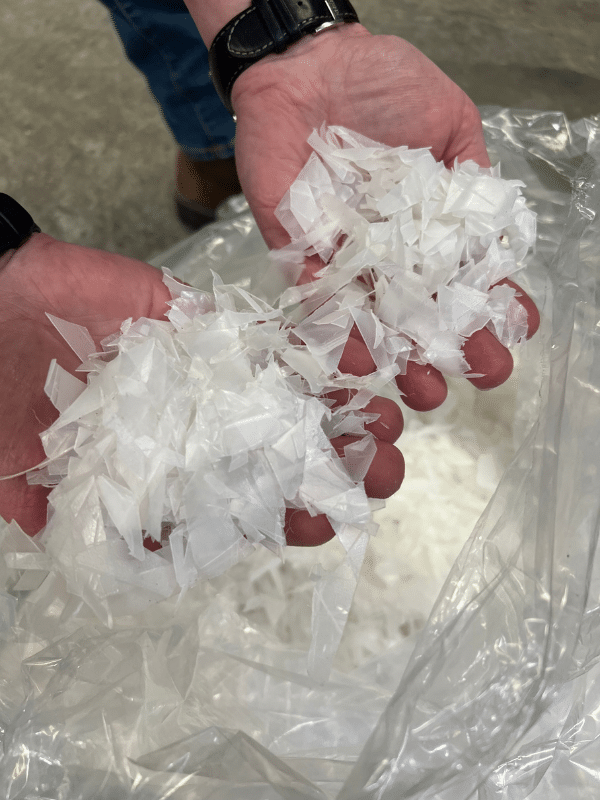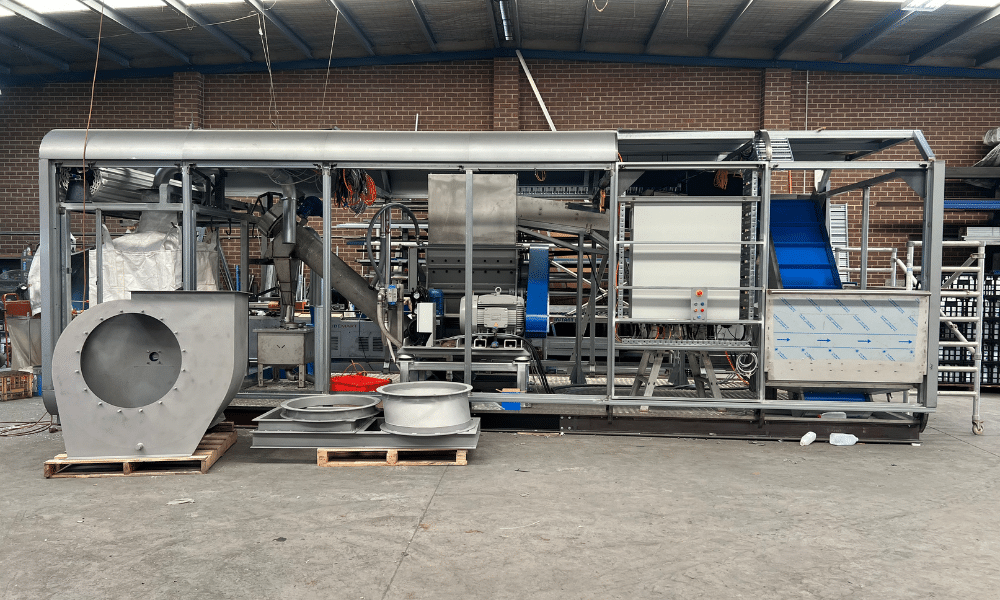Home » Energy Matters TV Show » Energy Matters Episode 7 » Episode 7: Popit Recycling
The war on plastic waste is heating up, and one Aussie invention is stepping in with a smarter, cleaner, closed-loop solution. Popit Recycling, featured in episode 7 of Energy Matters, has created a purpose-built machine that’s designed to disrupt the dairy industry—in a good way. By turning used milk bottles into clean, food-grade-ready plastic flakes, Popit is making bottle-to-bottle recycling commercially viable and more sustainable than ever.
In Episode 7 of Energy Matters, we visited the Procal Dairies facility to witness Australia’s first operational Popit machine in action. Host Roshan Ramnarain spoke with Taylor Quinn, National Logistics Manager for Procal, to understand their move towards more circular manufacturing.
Procal, which produces and bottles fresh milk on-site, has traditionally used 100% virgin plastic. But in a bid to reduce costs, improve sustainability, and reclaim expensive crates, Procal began collecting used milk bottles from customers. That’s when things got interesting.
Enter Popit Recycling—a local start-up founded in 2024 by Edward Vawdrey, Andrew Hinsen, and Tony Davies. They joined forces with plastic processing company Martogg to trial a new way to handle returned bottles. The result? A compact, two-part machine that enables dairies to recycle and reuse their own plastic, cutting down on cost, emissions, and waste.
The Energy Matters episode also featured Jhin Bagchi from Dairy Australia, who highlighted how Popit aligns with the Dairy Industry Packaging Roadmap. Popit’s solution isn’t just good for the planet, it also meets the strict food safety standards the industry demands.
Popit’s technology is small in size but mighty in impact. Designed specifically for commercial use, the Popit system is a two-part, on-site recycling unit that makes bottle-to-bottle recycling possible at scale. Here’s how the process works:
The process starts with returned bottles from B2B customers, mostly cafés and restaurants. Because these come from known sources, the quality of the material is high, and contamination is low. This makes the recycled product much more usable for remanufacturing.
The first machine in the system handles the initial cleaning. Bottles are thoroughly rinsed, stripped of labels and residue, and dried using high-efficiency blowers. This step ensures that the plastic meets hygiene and safety requirements for food-grade recycling.
Once clean and dry, the bottles are shredded into uniform flakes. These flakes are not just waste, they’re a valuable raw material. At this stage, businesses can either sell the flakes as-is or process them further.
The second Popit machine, due to be installed at Procal in the coming months, will refine the flakes even further. This final processing step brings the material up to a standard suitable for reintroduction into the bottle manufacturing process. This means dairies can start producing bottles with a blend of virgin and recycled plastic, significantly reducing their environmental footprint.

Popit machines are designed to integrate directly into existing operations. They’re compact, low-energy, and require minimal labour. Their modular design also means they can scale as needed, making them accessible for small dairies and large-scale producers alike.

Unlike traditional recycling methods, which rely on kerbside collection and third-party processors, Popit offers a controlled, in-house approach. That translates into:
More importantly, Popit’s system creates plastic flakes clean enough to be reused in food-grade packaging—something that’s been a major stumbling block for traditional recycling.
With support from industry partners like Martogg and Procal, and alignment with Dairy Australia’s roadmap, Popit is paving the way for smarter packaging and localised recycling in Australia.
Subscribe today to keep up to date with all things renewable, get the latest news, and receive fantastic deals.








Serving Canberra, ACT; Sydney, NSW; Melbourne, Victoria; Adelaide, SA; Perth, WA; Brisbane, Queensland; Hobart, Tasmania; most Australian cities and regional areas including Gold Coast, QLD and Newcastle, NSW.
© 2005-2024 Energy Matters | ACN: 632 317 545 | ABN: 41 632 317 545